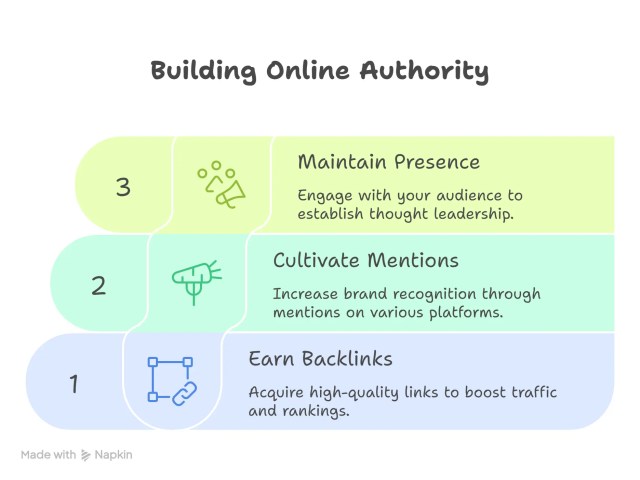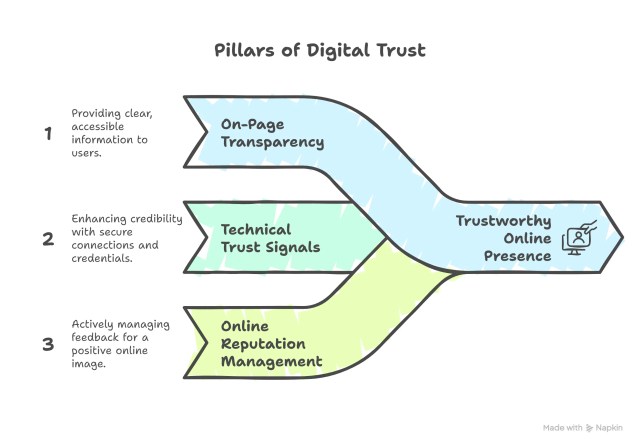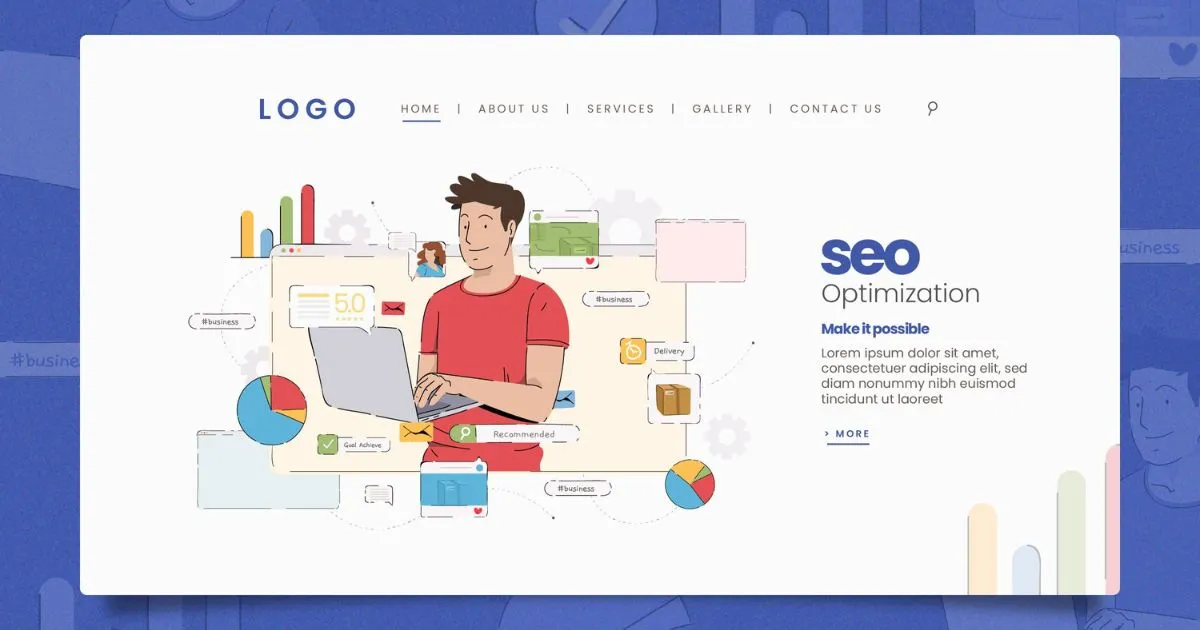The Shifting Landscape of SEO
The world of Search Engine Optimization (SEO) is undergoing a monumental transformation, driven primarily by the rapid advancements in Artificial Intelligence. For years, the holy grail of SEO was achieving the coveted #1 ranking on Google’s search results page. Businesses invested resources in optimizing for keywords, building backlinks, and meticulously crafting content to rise to the top of search engine results. However, as we step into 2025, this traditional paradigm is rapidly becoming obsolete.
The emergence of Google AI Overviews (formerly known as Search Generative Experience or SGE) and the widespread adoption of conversational AI models, such as ChatGPT, have fundamentally reshaped how users interact with search engines and, consequently, how businesses must approach their online visibility.
In this new era, simply ranking #1 for a keyword no longer guarantees the traffic and conversions it once did. AI Overviews provide instant, synthesized answers directly on the search results page, often negating the need for users to click through to a website.
This shift means that a significant portion of website traffic, estimated to be as high as 40% in specific sectors, is already being lost. The challenge for businesses now is not just to appear in search results, but to become the authoritative source that AI models cite, or to create content so uniquely valuable and engaging that users must click through to access it.
This blog post serves as your comprehensive 2025 playbook, designed to help you navigate this evolving landscape. We will delve into the critical shifts in SEO, introduce the new metrics of success, and provide actionable strategies to adapt your approach.
Our goal is to equip you with the knowledge and tools to transform AI from a perceived threat into your most significant growth opportunity, enabling you to establish authority, capture high-intent traffic, and drive sustainable profits in this rapidly evolving digital landscape. It’s time to move beyond old SEO tactics and embrace a future where credibility and value are paramount.
The E-E-A-T Imperative: Building Credibility in an AI World
In a world increasingly dominated by AI-generated content, Google’s E-E-A-T framework — standing for Experience, Expertise, Authoritativeness, and Trustworthiness — has never been more critical. E-E-A-T is Google’s quality assessment guideline, designed to evaluate the credibility and reliability of content and its creators.
In the context of AI, E-E-A-T serves as your ultimate competitive advantage, providing a robust defense against the proliferation of generic, faceless AI content farms. It is how you, as a business or content creator, prove your authenticity, demonstrate your value, and establish yourself as a real, credible entity in the digital sphere.
What is E-E-A-T?
- Experience: This refers to the creator’s direct, first-hand experience with the topic. It’s about demonstrating that you have used a product, visited a place, or performed a task you are writing about. This element is crucial for content where personal insight adds significant value, such as product reviews, travel guides, or how-to articles.
- Expertise: This refers to the knowledge and skills of the content creator in a specific field. It’s about showcasing deep understanding and proficiency. For example, a medical professional writing about health topics, or a certified financial advisor providing investment advice, would demonstrate high expertise.
- Authoritativeness refers to the reputation of the content creator and the website as a recognized source of information on a specific topic. It’s about how well-regarded you are by others in your industry. This is often built through mentions, citations, and backlinks from other reputable sources.
- Trustworthiness: This is the most fundamental component, encompassing the accuracy, honesty, safety, and reliability of the content and the website. Users need to feel confident that the information they consume is accurate and that their interactions with your site are secure. This includes transparent contact information, secure website protocols (HTTPS), and positive user reviews.
Why E-E-A-T is Your Ultimate Defense Against Generic AI Content?
AI models, while capable of generating vast amounts of text, often lack genuine experience, personal insight, and the nuanced understanding that comes from real-world interaction. This is where E-E-A-T becomes your differentiator.
By consistently demonstrating high levels of E-E-A-T, you signal to Google (and to users) that your content is superior, more reliable, and more valuable than anything a machine can produce.
Google’s algorithms are becoming increasingly sophisticated in identifying and rewarding content that exhibits strong E-E-A-T signals, particularly for Your Money Your Life (YMYL) topics, where accuracy and credibility are paramount.
-
Experience: Show, Don’t Just Tell
In an age where anyone can publish content, demonstrating genuine experience is your strongest defense against the perception of generic, AI-generated information. This is about demonstrating your real-world, hands-on involvement with your topic.
It’s not enough to simply state facts; you need to show that you live and breathe your subject matter.
- Publish Original Research & Case Studies: One of the most powerful ways to showcase experience is by sharing unique data and insights derived from your own operations or client engagements. This could involve publishing detailed case studies that outline a problem, your unique solution, and the measurable results achieved. For instance, a digital marketing agency could publish a case study detailing how they increased a client’s organic traffic by 50% using a specific SEO strategy, complete with screenshots and analytics. Similarly, a product company could share original research on how their product performs under specific conditions, backed by internal testing data. This type of content is inherently difficult for AI to replicate accurately, establishing you as a thought leader with practical knowledge.
- Use Original Media: Stock photos and generic videos are a turn-off. Lack of experience. To truly demonstrate experience, replace all generic visuals with authentic, original media. This means using real pictures of your team at work, showcasing your office environment, featuring your products in use by actual customers, or providing behind-the-scenes glimpses of your services. For example, a restaurant could share photos of its chefs preparing dishes, or a software company could provide video tutorials featuring its employees. This visual evidence reinforces your authenticity and builds a stronger connection with your audience.
- Incorporate First-Hand Anecdotes: Injecting personal stories and real-world examples into your content makes it relatable and demonstrates genuine experience. Share challenges you’ve faced, lessons you’ve learned, or unique insights gained from your journey. This narrative approach is something AI struggles to replicate convincingly. For instance, instead of just listing best practices for customer service, could you share a specific story about how your team went above and beyond to resolve a customer issue, highlighting the personal touch and problem-solving skills involved? These anecdotes add depth and credibility that generic, factual content often lacks.
-
Expertise: Demonstrating Deep Knowledge
Expertise is about showcasing your profound understanding and mastery of your subject matter. In the AI era, this means going beyond surface-level information and providing comprehensive, authoritative content that positions you as a definitive resource.
Google wants to see that you are not just repeating information, but truly adding value through your specialized knowledge.
- Develop Topic Clusters: Instead of creating isolated articles on various keywords, build comprehensive content hubs, also known as topic clusters. This involves creating a central A pillar page that provides a broad overview of a core topic, then links out to more detailed cluster pages that cover specific subtopics in depth. For example, a financial planning firm could create a pillar page on retirement planning, with cluster pages on topics like 401(k)s, IRAs, and Social Security. This structure signals to Google that you have a deep and well-organized understanding of your subject, making you a more authoritative source.
- Create Detailed Author Pages: Every piece of content on your site should be attributed to a real author. These authors should have their dedicated bio pages that showcase their credentials, years of experience, relevant education, and links to their professional profiles on platforms like LinkedIn. This is a critical E-E-A-T signal that helps Google (and users) verify the expertise of the person behind the content. A generic byline, such as “By Admin” or “By Staff,” is a red flag and should be avoided at all costs.
- Cite Authoritative Sources: I think it’s a good idea to lay out your claims with evidence from credible external sources. When you make a factual statement, link to the source, whether it’s an industry report, a government study, an academic paper, or a reputable news article. This not only adds credibility to your content but also shows that you are well-researched and engaged with the broader conversation in your field.
-
Authoritativeness: Building Your Reputation
Authoritativeness refers to your reputation within the broader industry. It’s not just about what you say about yourself, but what others say about you. In the AI era, building a strong, positive reputation is more important than ever, as it helps you stand out from the noise and establish yourself as a trusted voice.
- Earn High-Quality Backlinks: Backlinks from other respected, relevant websites are one of the strongest signals of authoritativeness. When another site links to your content, it’s essentially a vote of confidence in your expertise. I’d like you to focus on earning natural, editorially given links from sites that are themselves authoritative in your niche. This can be achieved through creating exceptional content that others want to share, building relationships with other creators, and engaging in strategic outreach.
- Cultivate Brand Mentions: Even without a direct link, mentions of your brand in reputable online publications, news outlets, and industry forums can contribute to your authoritativeness. These mentions signal that your brand is part of the conversation and is recognized by others in your field. You can monitor for brand mentions using tools like Google Alerts and actively seek out opportunities to be featured in relevant articles and discussions.
- Maintain an Active Industry Presence: Demonstrating your involvement in your industry beyond your website is a powerful way to build authority. This could involve speaking at industry conferences, appearing on podcasts, participating in webinars, or engaging with relevant professional associations. These activities not only increase your visibility but also position you as a thought leader and a go-to source for information in your field.
-
Trustworthiness: Ensuring Transparency and Security
Trustworthiness is the non-negotiable foundation of E-E-A-T. In an era where misinformation and data breaches are rampant, users and search engines alike demand transparency, security, and reliability.
Your website must be confident that the information provided is accurate and that user data is safe. Without trust, all other E-E-A-T efforts will fall short.
- Ensure On-Page Transparency: Make it easy for users to understand who you are, what you do, and how to contact you. This includes having a clear and easily accessible “About Us” page that details your company’s mission, values, and team members. Your contact information (including physical address, phone number, and email) should be prominently displayed. Additionally, comprehensive privacy policies and terms of service are crucial, especially when collecting user data. Transparency builds confidence and signals to both users and search engines that you are a legitimate and accountable entity.
- Implement Technical Trust Signals: Beyond content, the technical aspects of your website play a crucial role in establishing trustworthiness. A secure website (HTTPS) is no longer optional; it’s a fundamental requirement. HTTPS encrypts data transmitted between your site and users, protecting sensitive information and signaling to browsers that your site is safe. Furthermore, site speed and mobile-friendliness are critical. Google’s Core Web Vitals, which measure loading performance, interactivity, and visual stability, are direct ranking factors for search engines. A fast, responsive, and error-free website enhances user experience and reinforces reliability, indicating a well-maintained and trustworthy online presence.
- Manage Online Reputation: Your online reputation is a direct reflection of your trustworthiness. Actively monitor and respond to online reviews on platforms relevant to your industry, such as Google My Business, Yelp, or industry-specific review sites. Positive reviews serve as powerful social proof, while thoughtful and timely responses to negative feedback demonstrate your commitment to customer satisfaction and problem-solving. Engaging with your audience and addressing concerns openly builds a community of trust around your brand. Conversely, ignoring reviews or having a consistently negative online presence can severely damage your E-E-A-T and hinder your ability to rank in AI-driven search environments.
Generative Engine Optimization (GEO): Influencing AI Models
As AI models become increasingly integrated into search and information retrieval, a new discipline has emerged: Generative Engine Optimization (GEO). GEO is the strategic process of influencing how AI models understand, process, and present information, ultimately aiming to position your content as the preferred source for AI-generated answers.
This requires a dual strategy, as different AI systems operate with varying mechanisms and objectives. We must differentiate our approach when optimizing for Google’s real-time AI Overviews versus influencing broader conversational AI models, such as ChatGPT.
-
Strategies for Google’s AI Overviews: Becoming the Reliable Source
Google’s AI Overviews are designed to provide concise, direct answers to user queries, often synthesizing information from multiple sources. The goal here is to make your content the most reliable, well-structured, and easily digestible source for Google’s AI to use when generating these overviews.
This is an intensification of modern SEO best practices, with a heightened focus on clarity, authority, and structured data.
- Building Deep Topical Authority: Google’s AI prioritizes content from sources that demonstrate comprehensive knowledge across an entire topic, not just individual keywords. This means moving beyond isolated articles and building deep topical authority through comprehensive content hubs or topic clusters. By creating a network of interconnected content that thoroughly covers all facets of a subject, you signal to Google’s AI that you are an expert and a definitive resource. This makes your content more likely to be cited in AI Overviews, as it provides a holistic and authoritative perspective.
- Structuring Content for AI Readability: AI models excel at extracting information from well-organized content. To make your content AI-friendly, focus on clear, logical structuring. Use descriptive headings (H1, H2, H3) to break down your content into easily scannable sections. Employ short paragraphs, bulleted lists, and numbered lists to present information concisely. Tables are particularly effective for organizing comparative data or key facts, enabling AI to quickly identify and extract relevant points. This structured approach not only improves readability for human users but also optimizes your content for AI parsing, increasing the likelihood of it being featured in AI Overviews.
- Targeting Conversational Queries: As users increasingly interact with search engines using natural language and full questions, optimizing for conversational queries becomes paramount. Think about the questions users might ask an AI assistant related to your niche. Create robust FAQ sections that directly answer these questions. Develop content that addresses common problems and provides clear, step-by-step solutions to help users effectively resolve them. By anticipating and directly answering these conversational queries, you position your content as a direct match for AI-generated responses, making it more likely to be selected as a source.
- Implementing Advanced Schema Markup: Schema markup is a form of microdata that helps search engines understand the meaning and context of your content. For AI Overviews, implementing advanced schema types is crucial. Utilize FAQ Page schema for your FAQ sections, How To schema for step-by-step guides, and Article schema for blog posts and news articles. For author pages, the Profile Page schema can provide explicit context about the content creator’s credentials. By providing AI with explicit semantic context through schema, you make it easier for the model to interpret and utilize your content accurately, increasing its visibility in AI-generated results.
-
Strategies for Conversational AI (e.g., ChatGPT): Building Brand Reputation
Influencing conversational AI models, such as ChatGPT, requires a different approach, as these models often draw from a vast corpus of training data that includes web pages, books, and other digital content. The goal here is to saturate the AI’s training data with positive, third-party signals about your brand’s authority and reputation.
This is less about direct on-page optimization and more about strategic brand building and digital public relations.
- Focus on Digital PR: Secure mentions in authoritative “best of” and “top 10” listicles, industry roundups, and reputable online publications. When your brand is consistently mentioned as a leader or a top choice in your industry by credible third-party sources, it signals to AI models that your brand is well-regarded and trustworthy. This kind of positive external validation can influence how AI models perceive and reference your brand in their responses.
- Win Awards & Actively Seek Reviews: Industry awards and positive customer reviews serve as powerful social proof. You can actively pursue relevant industry awards and encourage your satisfied customers to leave reviews on major platforms, such as G2, Capterra, Trustpilot, and Google My Business.AI models often factor in reputation and sentiment when generating responses, and a substantial collection of awards and positive reviews can significantly enhance your brand’s standing in the AI’s knowledge base.
- Get Listed in Authoritative Databases: Ensure your company is listed in authoritative knowledge bases and industry directories. This includes platforms like Wikipedia, Bloomberg, CrunchBase, and key industry-specific directories. These databases are often used as foundational sources by AI models to gather factual information about companies and individuals. A presence in these trusted sources lends significant credibility to your brand.
- Build Social Authority: Foster a positive and active online conversation about your brand on social media platforms and reputable forums, such as Reddit or Quora. While direct social signals may not be a primary ranking factor for Google, the overall sentiment and discussion around your brand on these platforms can contribute to the broader perception of your authority and reputation, which can indirectly influence conversational AI models. Engaging with your community, responding to queries, and participating in relevant discussions helps build a strong, positive digital footprint.
Conclusion: Embracing the Future of SEO
The landscape of SEO is no longer about simply optimizing for keywords and chasing the #1 spot on a traditional search results page. The advent of AI Overviews and the pervasive influence of conversational AI models have ushered in a new era, one where credibility, authority, and genuine value are the true currencies of online visibility.
The 2025 SEO Playbook demands a fundamental shift in mindset: from a focus on mere ranking to a strategic pursuit of becoming a trusted and authoritative source that AI models and human users alike will rely on.
We have explored the critical importance of E-E-A-T—Experience, Expertise, Authoritativeness, and Trustworthiness as the bedrock of your digital presence. By demonstrating genuine experience, showcasing deep knowledge, building a strong industry reputation, and ensuring unwavering transparency and security, you not only differentiate yourself from the growing tide of AI-generated content but also build a resilient foundation for long-term success.
Furthermore, we delved into Generative Engine Optimization (GEO), outlining distinct strategies for influencing Google’s AI Overviews through structured, authoritative content, and for shaping the perception of your brand within broader conversational AI models through strategic digital PR and reputation building.
This transformation is not a threat to be feared, but an immense opportunity to be seized. Businesses and content creators who embrace these changes, prioritize genuine value, and commit to building authentic authority will be the ones that thrive in the AI-driven search environment.
The future of SEO is dynamic, constantly evolving, and deeply intertwined with the advancements in artificial intelligence. Continuous adaptation, learning, and a relentless focus on delivering exceptional value will be the hallmarks of success. It’s time to implement this 2025 SEO Playbook, redefine your approach, and secure your position as a trusted leader in the AI era.












